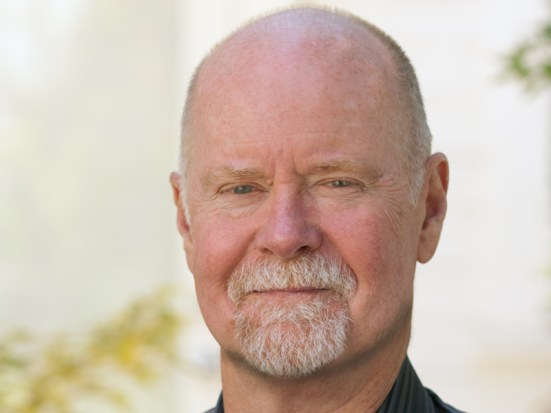
John Lescroart has been cranking out terrific thrillers for a long time. Tomorrow, Tuesday, February 13th, his seventeenth book starring San Francisco-based attorney Dismas Hardy hits bookstores. If you’re a fan of John Grisham or Michael Connelly, this one’s for you!
I was thrilled when Lescroart agreed to go on the record for our Five Questions segment and couldn’t wait to ask him about Hardy and how he’s changed over the years. I also asked him about his last novel, Fatal, a standalone suspense thriller that kicks off with a horrible one-night stand that quickly turns, well, fatal, as the title suggests. I loved that book, and it was a hit with Book Spy followers too. Interestingly enough, Lescroart actually wrote that book a little bit on the fly, after writing a great first scene that he knew he wanted to use.
Special thanks to John Lescroart for providing such thoughtful answers, and for taking the time to do this interview. See the full Q&A below, then keep scrolling to learn more about Poison, in stores everywhere tomorrow!
TRBS: First and foremost, Poison is fantastic! Did you ever think back in 1989 when Dead Irish, your first Dismas Hardy book, came out, that you’d still be writing him almost thirty years later?
Lescroart: “Back when I sat down to write Dead Irish, it never occurred to me whether or not there would even be a book two in the series. All I was trying to do was write a publishable book set in modern times and in the US. (My first three books had all been set in Europe.)
“After reading an article in The Third Degree (the MWA magazine) by Dick Lochte entitled something like ‘Please, no more PIs, and Not in LA,’ I decided to set my book in San Francisco and have my hero not be a private eye, but rather a lawyer. For a non-lawyer like myself, this was a bit of a daunting task, but I persevered and found that I liked Dismas Hardy as a main character. So I wrote a sequel (The Vig), and then in another one (Hard Evidence) I brought him back to the practice of the law.
“Finally I got to book four in the ‘series’ (The 13th Juror), and though that book earned some nice critical response, it didn’t make me anywhere near enough money to justify continuing. So I dropped Hardy altogether, thinking that my secondary character in the Hardy books, a cop named Abe Glitsky, would be a more commercial hero. It’s true — four books into the Hardy series, I dumped him altogether. I wrote two Glitsky books (A Certain Justice and Guilt) and then the strangest thing happened — The 13th Juror came out in paperback and made the New York Times bestseller list. And suddenly my publisher urged me to pick Hardy up again, which I did. That was already nine books into my career, and I was still unsure about this whole Dismas Hardy series idea.
“So I think it’s fair to say that I couldn’t be more surprised to find myself something like twenty-two books into that series, and Hardy and friends still seem to be to be vibrant and relevant. It’s a bit of a miracle, but I’ll take it. “
TRBS: This is your first Dismas Hardy book since 2015’s The Fall, and you wrote a standalone novel (Fatal) last year. Why the break from Dismas, and were you excited to get back to him?
Lescroart: “No matter how much you care about and identify with your characters, sometimes you have to leave them alone to work out their issues and growth on their own. That’s what happened to me after The Fall. Not to be a spoiler, but Hardy ended that book in a precarious physical state, and the idea that he could somehow show up the next year in robust good health struck me as unlikely. He needed some time to heal (literally) and, of course, to come to grips with his aging and his mortality. So I started what turned out to be Fatal, and the new realities of that book — characters, plot, and even setting — wound up being compelling and a total change of pace from the Hardy books.
“The great news is that when I finished Fatal, Hardy was back to his old self in terms of his health, and leavened in his new-found approach to the legal world. It was a total joy getting back inside his head and figuring out his new approach to his career and his life, and these considerations become the driving force behind Poison.”
TRBS: Before I ask you about Poison, I want to ask you about Fatal, because I really enjoyed that book. The idea of a bad one-night stand is something that, well, most adults probably have some experience with. The idea of it turning fatal, though, takes this to another level. What inspired you to write that story, and how did you come up with the plot?
Lescroart: “I think I’ve answered part of this question above. But to go into it a little more, I’ve recently come upon the word ‘pantser,’ meaning a writer who plots books by the seat of his pants.
“I fall squarely into that slot. What I did in Fatal was write a scene that I liked to start it off, one that felt universal — the whole question of the one-night stand and its ramifications. Talk about conflict from the start, and one that as you point out, nearly everyone can relate to. Then I just followed Beth Tully and Kate Jameson as their respective worlds gradually diverged. And then, maybe halfway through, I had a true ‘pantser’ moment, when a scene just appeared one day when I was writing, and it changed the entire feel and trajectory of the book. Once that scene was on the page, the rest of the book just happened. It was — to quote the Beach Boys — “catch a wave and you’re sitting on top of the world.”
TRBS: Moving on to Poison, which features Hardy shrugging off semi-retirement to represent a former client who is accused of poisoning her boss, where did the idea for this book come from?
Lescroart: “I’ve always been a big fan of mysteries where two or more seemingly unrelated events are actually inextricably linked, and how they fit together form the central question of the plot. It’s even better, from my perspective, if while I’m starting to put down some early scenes, I don’t have any idea how these events might be related.
“This is the theory that if I’m fooled by what comes next, my readers will be similarly fooled as well. And if I can pull off that feat, I’m probably going to have a successful and satisfying book — that is what happens in Poison. Two separate stories converge, most unexpectedly. And Hardy’s side of this mystery — what really started off driving the plot — was something I’d never really explored before, and that is the big family riven by secrets, passions, and emotions.
“Being one of seven children myself, I knew that territory well and intuitively, and it actually surprised me that this was the first time this kind of stuff really made it into one of my books. Everybody loves a big family drama, and I was delighted to have stumbled onto this one.”
TRBS: Lastly, how has Dismas changed over the years, and what do you envision for him moving forward?
Lescroart: “Dismas hardly could have changed more over the course of these books. From being a divorced ex-cop, ex-attorney and full-time bartender at The Little Shamrock bar, to being a happily married father of two and the managing partner of a major San Francisco law firm is a tremendous character arc, and Hardy must continue to change and grow in every book, one small and incremental step at a time. And I believe he has done so.
“Meanwhile, the intensely personal young man who was Dismas Hardy in 1988 has had to become conversant and deeply involved with the bigger world of social issues, politics, corporate infighting, family conflicts, deaths of friends and, of course, legal strategies galore.
“Moving forward is in some sense also moving backward. I’ve finished the 2019 book (currently not titled) where a new district attorney, for his own personal and political reasons, declares war on Hardy and his law partners, digging up issues from all of their past lives and threatening their reputations, their businesses, and even their lives.”
In John Lescroart’s latest thriller, San Francisco attorney Dismas Hardy is called upon to investigate the murder of a wealthy man whose heirs are all potential suspects.
Dismas Hardy is looking forward to easing into retirement and reconnecting with his family after recovering from two glancing gunshot wounds courtesy of a recent client. But this plan is cut short when, against his wife’s wishes, he is pulled back into the courtroom by the murder of Grant Wagner, the steely owner of a successful family business. The prime suspect is Wagner’s bookkeeper, Abby Jarvis, a former client of Hardy’s who had been receiving large sums of cash under-the-table from the company—but she insists that she’s innocent and Dismas wants to believe her.
As he prepares for trial, Dismas probes deeply into the Wagner clan’s history, discovering dark secrets, jealous siblings, gold-digging girlfriends, startling betrayals, and menacing blackmailers. Suspense builds as the trial date looms, and the closer Dismas gets to the Wagners, the clearer it becomes that he has a large target painted on his back.
With John Lescroart’s razor-sharp dialogue, intricate plotting and relentless pacing, Poison is a nail-biter that will keep you guessing until the very last page.
Praised as “one of today’s finest book reviewers” by New York Times bestselling author Gayle Lynds, Ryan Steck has “quickly established himself as the authority on mysteries and thrillers” (Author A.J. Tata). He currently lives in Southwest Michigan with his wife and their six children.
